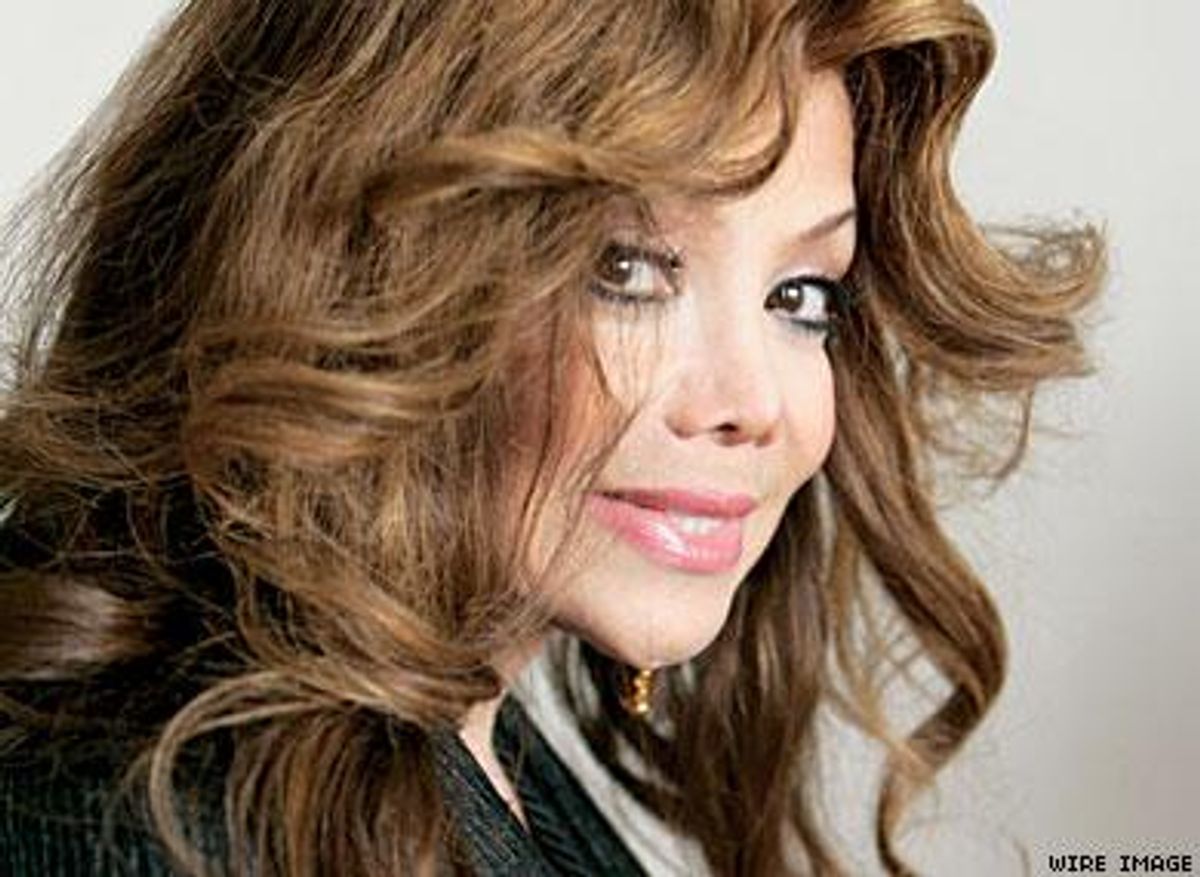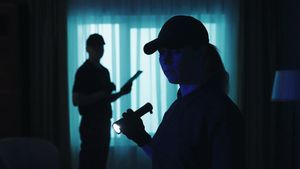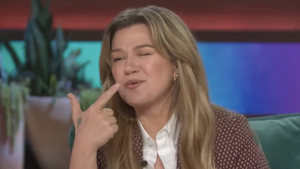As a contestant on NBC's The Celebrity Apprentice, La Toya Jackson continues to raise funds and awareness for AIDS Project Los Angeles. In last week's episode, she delivered $65,000 to APLA, which communication director Gabriel McGowan said couldn't have come at a better time due to cuts in the federal and state budget for HIV/AIDS treatment funding. "A gift of this size would allow us to buy enough food to serve every client at all nine of our food pantries for a month," he said, "with funds left over for our many other HIV prevention and care programs." As the 54-year-old singer-songwriter readies to release her long-delayed 11th studio album, she explains why APLA has become as important to her as it was to her brother Michael.
Why did you choose AIDS Project Los Angeles as your charity organization on Celebrity Apprentice?
My brother is in the Guinness Book of World Records for giving over $400 million to charities around the world, and AIDS Project Los Angeles was one that was very close to his heart. When I was approached to do Celebrity Apprentice, I thought it would be a wonderful opportunity to bring some awareness to APLA.
How did you first get involved with the organization?
I got involved with them when my brother passed. I wanted to continue the work with APLA where Michael left off.
Of all the charities that Michael was involved with, why was APLA so special to him?
Well, there are a lot of different charities, and no one charity is better than the others. But there are young kids out there suffering from AIDS, innocent kids who didn't ask for this and who don't have a voice, so Michael knew how important it was to find a cure. I remember going to the hospital to see these poor little babies that weren't any bigger than my hand because they had AIDS.
How will the money you raise on Celebrity Apprentice be used to help people?
Some will be donated toward the effort to find a cure. Some will go to buy groceries and things for those who can no longer leave their homes -- I often go deliver groceries to people. But more than anything, the money raised will go toward giving people medicine to keep them well. The medicine is very expensive, especially when you don't have insurance.
What was it like working with Donald Trump?
Incredible. He's really done a wonderful thing here, reaching out to these celebrities to come fight for different charities. It's brilliant.
Your 2009 single "Home" also benefited APLA.
Yes, every single penny went to them. That song had actually been recorded about eight years ago. Not long after my brother passed, my record company wanted me to put out a song, but I told them I didn't want to put a song out at that time. But if I decided that if had to do it, I'd put out this particular song and donate all of the money to charity. "Home" is actually a song about my family. It's about how you all grow up together, and then you go in different directions that take you away from home, but you can always come back and find each other because we're still together as one.
How have you been personally impacted by HIV and AIDS?
I've lost quite a few friends to the disease. I had a makeup artist -- he actually did my makeup for my Playboy spread -- and we were very close. I just couldn't understand it in the beginning. He passed away, and then one of my dancers, who was also very close to my heart, passed away. Another friend, Bobby DeBarge, eventually died from the disease as well. It was very troubling to feel like I couldn't do anything about it. But now I know that even though you can't cure the disease in one moment, you can certainly do something to help by giving.
Do you feel that AIDS awareness has receded since the '80s and '90s?
Yes, and people need to be reminded that it's still affecting millions. In the beginning that's all we heard about, and people were terrified because we didn't have enough knowledge. We forget the fact that it's still out there, but it needs to be back at the forefront now so that people can be more aware and can donate more to AIDS-related causes. It's a disease that's not going away anytime soon.


















































































